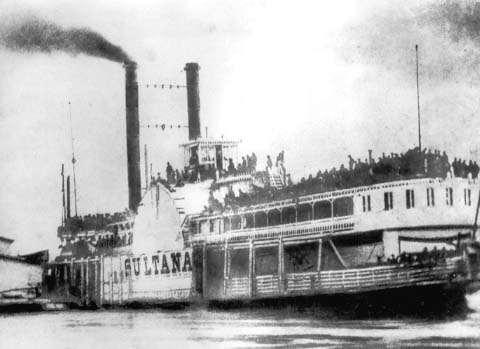by Kathy
Cannon Wiechman
(Kathy’s A to Z posts are tidbits of
fact gleaned from her research for her historical-fiction novel LIKE A RIVER.)
As
the Civil War neared an end, the Confederacy moved prisoners from Andersonville and released them into Union hands. After
Lee’s surrender, those men and released prisoners from Alabama
The
Sultana was built to carry 376
passengers and a crew of 85. After civilian passengers had boarded, the released
prisoners were loaded onto the decks until the weight of the men caused the
floors to sag. Posts were brought in to shore up the floor, and more men boarded.

The
U.S.
Around
2:00 AM on April 27, 1865, the boat’s boilers exploded. The explosion, its fire,
the boilers’ scalding water, and drowning in the Mississippi
After hearing those staggering numbers, I
wondered why I had never previously heard about the Sultana (which was built in my home city of Cincinnati U.S.




Wow. That's insane that it got no press. I've heard of it once before, but I would love to learn more of the details. Fascinating stuff.
ReplyDeleteTrue Heroes from A to Z
Thanks, Crystal. Hope you'll read my book when it comes out next year.
DeleteYou would think with that many dead, someone would've noted it. That ship carried almost ten times too many passengers.
ReplyDeleteYou'd think so, but the big Eastern cities led the way with news of the day, & none of the dead were from those cities. Also, almost all were enlisted men, rather than officers.
DeleteThanks, Juliet.
ReplyDeleteFascinating. I can see why you just had to write about this! "More deaths than the Titanic"--that puts this tragedy in perspective.
ReplyDeleteIt certainly does. Thanks, Carol, for your comment.
Delete